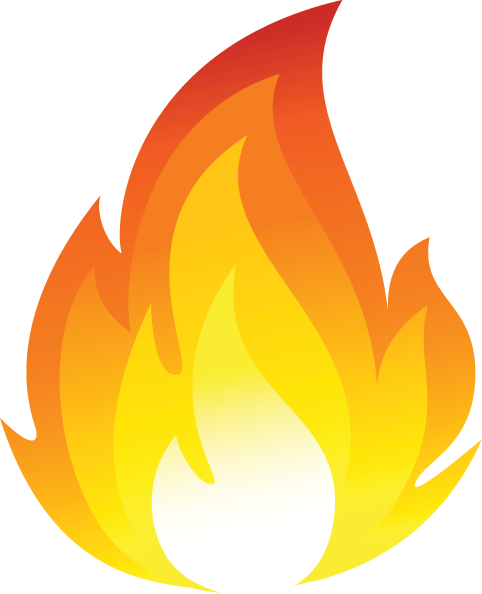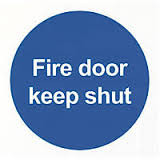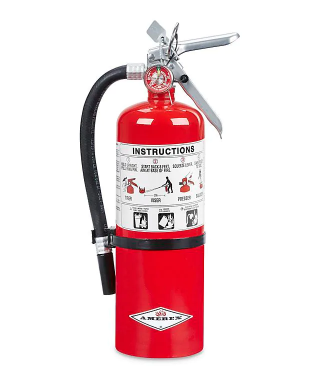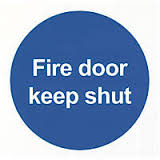Information
-
Site conducted
-
Fire risk assessment
-
Client / Site
-
Conducted on
-
Prepared by
-
Location
-
Client Personnel
The building
Information about the building
-
Number of floors 2
-
Brief details of construction:
-
Operations undertaken within the premises:
The Occupants
-
Approximate maximum number:
-
Approximate maximum number of employees at any one time:
-
Maximum number of members of public
Occupants at special risk
-
Are there any disabled, remote or sleeping occupants?
-
Number of sleeping occupants:
-
Number of disabled occupants:
-
Number of occupants in remote areas:
Previous fire history
-
Have there been any fires or fire related incidents in the premises?
-
Enter details
Fire safety legislation
-
Regulatory Reform (Fire Safety) Order
Relevant Fire Risk Assessment Guidance pertaining to the premises -
Has an individual been appointed with management responsibility for fire safety
-
Name
-
A person who has control of the premises (as occupier or otherwise) in connection with the carrying on by him of a trade, business or other undertaking (for profit or not); or
the owner, where the person in control of the premises does not have control in connection with the carrying on by that person of a trade, business or other undertaking should be named -
Is a competent person available to assist in the implementation of fire safety controls?
-
Name
-
There should be someone with an appropriate level of competence to help you.
-
Have persons been nominated to respond to fire situations
-
Who and how
-
Are appropriate procedures in place for summoning emergency assistance
-
What is the procedure?
-
Are arrangements in place for liaison with the fire authority
-
Are routine in-house inspections of fire precautions undertaken
-
What inspections are done in house?
-
Section comments
Fire protection measures
Fire Protection Measures
-
Are the premises provided with adequate and reasonable means of escape?
-
Are there an adequate number of designated emergency exits?
-
Are exits easily and immediately open able?
-
Do exits open in the direction of escape?
-
Is the use of sliding/revolving doors as emergency exits avoided
-
Are there satisfactory means for securing emergency exits?
-
Are travel distances to secure/protected reasonable?
-
Are suitable fire precautions in place for all inner rooms?
-
Are all escape routes unobstructed?
-
Are reasonable arrangements in place for the evacuation of disabled occupants?
-
Has a suitable assembly point been identified away from the premises?
-
Is the means of reaching the assembly point safe, free from obstruction and away from busy traffic routes, etc?
-
Is the assembly point clearly identified, labelled or signposted?
-
s a system in place for conducting a roll call at the assembly point?
-
Section comments
Measures to limit fire spread
Measures to limit fire spread
-
Is there evidence of adequate compartmentation of the premises?
-
Is there reasonable limitation of linings that may promote fire spread?
-
Are fire routes clear of flammable materials?
Escape lighting
-
Are provisions in place to ensure that escape routes are adequately lit at all times when the premises are occupied?
Fire safety signs & notices
-
Are emergency escape routes throughout the premises adequately marked with appropriate safety signage in accordance with current legislation?
-
Section comments
Means of raising the alarm
Means of raising the alarm
-
Is there an appropriate means of raising the alarm throughout the premises?
-
Can the fire alarm system be heard by all persons throughout the premises at all times when the premises is occupied?
-
Is automatic fire detection provided throughout the premises?
-
Is the system for detecting fires and raising the alarm available at all times when the building is occupied?
-
Does the system remotely transmit alarm signals to an external organisation?
-
Section comments
Manual fire fighting appliances
Manual Fire Fighting Appliances
-
Are appropriate means for manually fighting fires available throughout the premises?
-
Are hose reels provided throughout the premises?
-
Are fire blankets provided within the premises?
-
Are a suitable number portable fire extinguishers available throughout the premises?
-
Is the location of fire fighting equipment obvious and clearly defined?
-
Is fire fighting equipment clearly indicated and labelled?
-
Have appropriate staff been trained in the use of fire fighting equipment?
-
Is an automatic fire fighting system provided within the premises?
-
Section comments
Emergency Arrangements
Training & Drills
-
Are all staff provided with relevant instruction related to fire and emergency on induction to the company?
-
Are all staff provided with “refresher training” at appropriate intervals?
-
Are staff with specific responsibilities (e.g. fire wardens) given additional training?
-
Are fire drills carried out on an appropriate and regular basis?
-
Section comments
testing and maintenance
Testing & maintance
-
Are the premises adequately maintained?
-
Are weekly tests and periodic inspections of the fire detection and alarm systems undertaken?
-
Are Monthly, 6 Monthly and annual testing routines in place for emergency lighting?
-
Are items of local fire fighting equipment checked, tested and maintained on at least an annual basis?
-
Where applicable are rising mains inspected and tested on six monthly and annual basis respectively?
-
Where applicable are sprinkler systems tested weekly and regularly inspected?
-
Are routine checks of final exit doors or security fastenings undertaken?
-
Are lightning protection systems inspected and tested annually?
-
Section comments
Maintaining records
Does the company maintain adequate records of::
-
• Maintenance and Testing of Fire Protection Systems
-
• Fire/ Emergency Training
-
• Fire Alarm Testing
-
• Emergency Evacuation Lighting
-
• Emergency Evacuation Drills
-
Section comments
Control of Workplace fire hazards
Electrical hazards
-
Are reasonable measures taken to prevent fires of electrical origin?
-
Are fixed installations periodically inspected and tested?
-
Is Portable Appliance Testing carried out?
-
Is a policy in place regarding the presence and use of personal electrical appliances?
-
Are suitable electrical distribution points available to limit the presence of trailing leads and adapters?
-
Section comments
Smoking
-
Are reasonable measures taken to prevent fires as a result of smoking?
-
Is the prohibition of smoking on the premises enforced?
-
Are arrangements in place for those who wish to smoke?
-
Is evidence available to substantiate breaches of smoking policy (Cigarette butts, ashtrays etc.)?
-
Saection comments
Arson
-
Does security in place to prevent arson by outsiders appear to be reasonable?
-
Is the storage of wastes and other materials close to the building kept to a minimum to reduce the potential for ignition by outsiders?
-
Section comments
Heating
-
Is the use of portable heaters avoided as far as is practicable?
-
If portable heaters are used is the use of radiant bar fires and LPG appliances avoided?
-
Are controls in place to minimize the potential of ignition of combustible materials?
-
Are fixed heating installations regularly inspected and maintained?
-
Section comments
Cooking
-
Are reasonable measures taken to prevent fires as a result of cooking activities?
-
Are filters and ductwork regularly cleaned?
-
Section comments
Housekeeping
-
Is the standard of housekeeping within the premises adequate?
-
Are combustible materials separated from ignition sources?
-
Is the unnecessary accumulation of combustible materials or wastes avoided?
-
Are hazardous / flammable materials appropriately stored?
-
Is the inappropriate storage of combustible materials avoided?
-
Section comments
Hot works
-
Are hot works likely to be carried out?
-
undefined
-
Are controls in place over works carried out by contractors (“hot work” permits)
-
Are fire safety conditions imposed on contractors?
-
If in-house maintenance personnel are utilized are suitable precautions taken during works?
OBSERVATIONS
Observations
-
Observation
-
undefined
Fire risk assessment
-
Taking into account the fire prevention measurers observed at the time of this risk assessment, it is considered that the hazard from fire probability of ignition is:
-
Taking into account the nature of the building and the occupants, as well as the fire protection and procedural arrangements observed at the time of this risk assessment, it is considered that the consequences for life safety in the event of fire would be.
-
These are defined as:
Slight harm: Outbreak of fire unlikely to result in serious injury or death of any occupant (other than an occupant sleeping in a bedroom in which a fire occurs).
Moderate harm: Outbreak of fire could result in injury of one or more occupants, but it is unlikely to involve multiple fatalities.
Extreme harm: Significant potential for serious injury or death of one or more occupants. -
Client signature
-
Auditor signature










